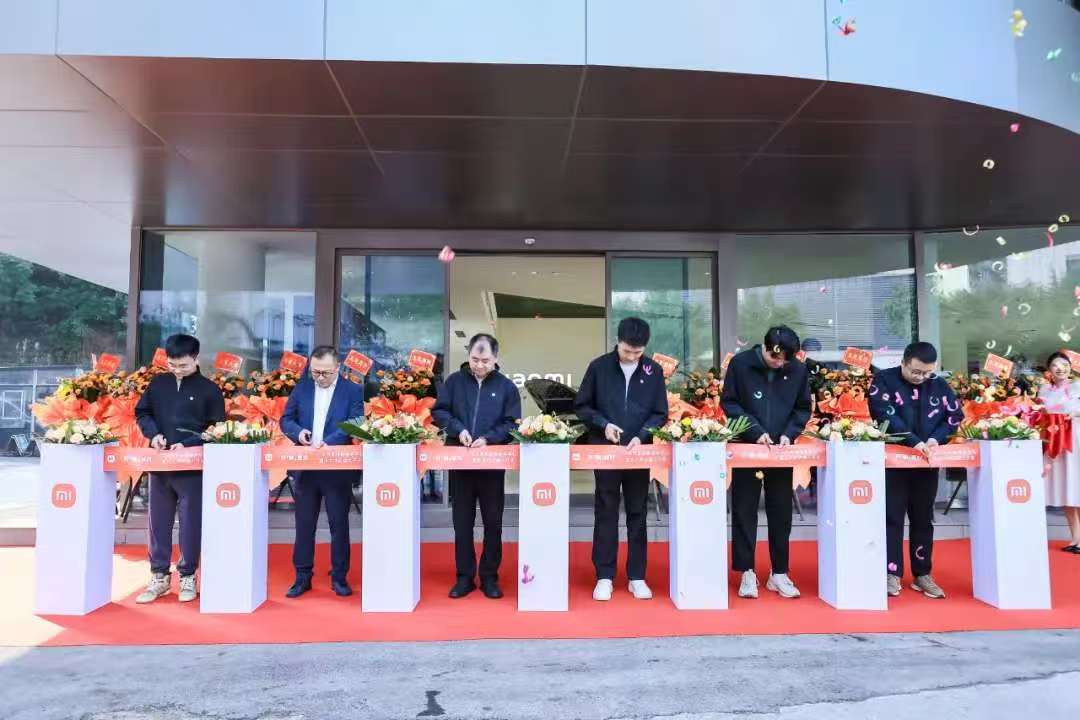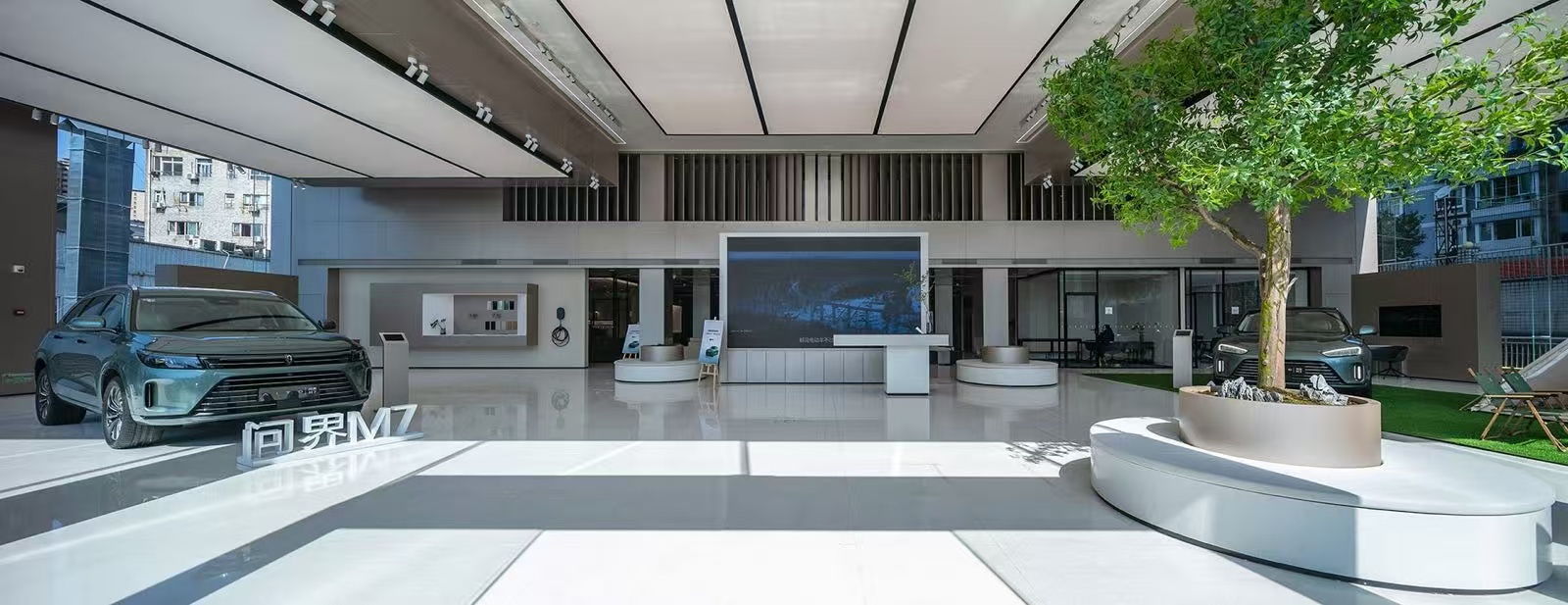 Bridging News
Bridging News
Chongqing Car Dealerships Face Major Shake-Up as Fuel Cars Fade and NEVs Rise
Chongqing—As traditional fuel-powered car dealerships in Chongqing rapidly downsize, many are embracing the rise of new-energy vehicles (NEVs) to stay afloat.

On November 10, the Xiaomi Auto store of Chongqing Shangshe Automobile Sales Co., Ltd. opened. (Photo provided by the interviewee)
Local reports say former Audi 4S stores in Hutouyan are now showrooms for NEV brands like Li Auto and Xpeng. In Erlang, a new Leapmotor dealership is being built. Around Hongqihegou Interchange, a former hub for traditional brands like MG, Citroen, and Nissan, is now a "New Energy Vehicle Mall" with over 10 NEV brands.
This shift reflects a broader trend in the auto sales industry. As NEVs gain market share, fuel-powered vehicle sales have declined. The China Passenger Car Association reports a 6% drop in fuel car sales in 2023, with an 18.8% decrease in the first 11 months of 2024. In Chongqing, fuel car sales fell by 18.3% in October, with notable drops among German, American, and Japanese brands.
The end of the "golden age" for fuel-powered cars
Fuel-powered cars dominated the market for over a decade, with joint venture brands leading the way. Luxury car brands such as Mercedes-Benz, BMW, and Audi were particularly profitable, with some large dealerships in Chongqing generating nearly 100 million yuan (about 13.7 million U.S. dollars) annually. However, since 2022, a series of market changes, including price wars, the transition to stricter emissions standards, and the growing dominance of NEVs, have left traditional car dealerships struggling to keep up.
Many luxury car brands have significantly slashed prices to compete with NEVs. Despite these measures, consumer interest in fuel-powered cars continues to decline.
In contrast, NEV sales in Chongqing have surged, with a nearly 50% year-on-year increase in sales through October and a market penetration rate of 54%. As a result, many traditional car dealers in the city have had no choice but to pivot towards NEVs, marking the end of the “golden age” for fuel-powered cars.
Adapting to the new era
Many dealerships are rapidly transitioning to NEVs to navigate this shifting landscape. For example, the Chongqing Bescar Auto Co., Ltd began its transformation in 2021, with a current store ratio of 40% NEVs to 60% traditional vehicles, offering a variety of NEV brands, including Huawei, Xpeng, and BYD.
Similarly, the Chongqing Shangshe Automobile Sales Co., Ltd. has accelerated its NEV expansion since 2022. Wang Lingxiu, a representative of the company, stated that half of the company's sales terminals are now NEV brands, with several new NEV dealerships opening this year.

The Harmony lntelligent Mobility Alliance store of Chongqing Bescar Auto Co., Ltd. (Photo provided by the interviewee)
Even large dealerships like Chongqing Longhua Industrial (Group) Co., Ltd., once a top seller of fuel-powered vehicles, have shifted their focus. After representing brands such as Volkswagen, Honda, and Volvo, the company is now renting out its renovated properties to NEV brands and pivoting towards property management.
Despite the industry-wide shift towards NEVs, success is not guaranteed. Yang Yi, Executive Chairman of Bescar Auto, noted that many early adopters of NEV brands, such as Weima and Neta, have already exited the market due to insufficient brand strength. In fact, the China Automobile Dealers Association reported that over 800 independent NEV brands shut down in the first half of 2023 alone.
Selling NEVs may not be more profitable
While NEV dealerships promise lower operating risks due to a shift from traditional dealership models, they also present new challenges. In the past, dealerships would typically stock inventory for extended periods, but with the shift to agency models, inventories are now more fluid, reducing the pressure on dealers. However, profit margins can be tighter. In the agency model, dealerships primarily earn fixed service fees, while traditional dealerships generate additional profits from car accessories, insurance, and financing services.
According to industry insiders, the profit margins for NEV dealerships are similar to those of traditional brands, but the total profit is still lower than the "golden years" of fuel-powered cars. However, as the market for NEVs matures, iprofitabilityis expected ttoimprove.
NEVs also present new complexities in terms of after-sales service. Repairing key components, especially the battery and electric systems, requires specialized training and equipment, creating new challenges for dealerships. Still, for many dealerships, the transition to NEVs is seen as the only way forward in the face of declining fuel car sales.
As Chongqing's auto dealerships navigate this transformative period, it’s clear that the shift to new energy vehicles is both a challenge and an opportunity. The future of the local car market will depend on how well dealerships can adapt to the changing landscape, choose the right brands to partner with and adjust their business models to meet new consumer demands.
(Bai Lin, a reporter from Chongqing Daily, contributed the Chinese version of this report.)
 Related Stories
Related Stories